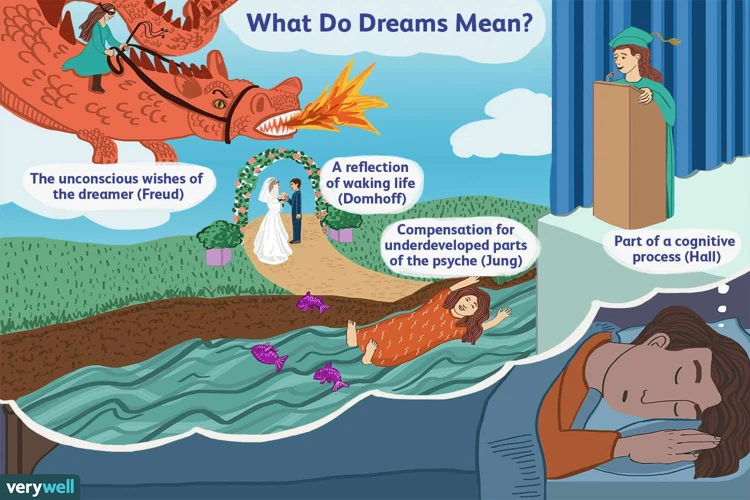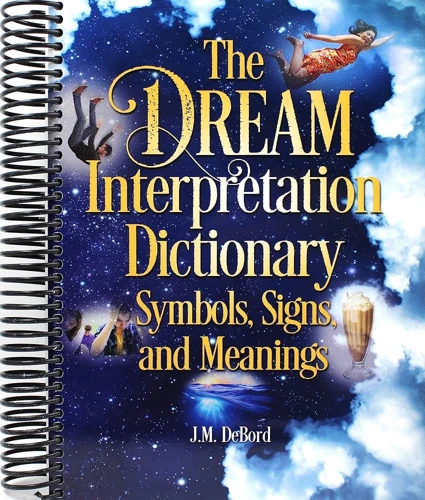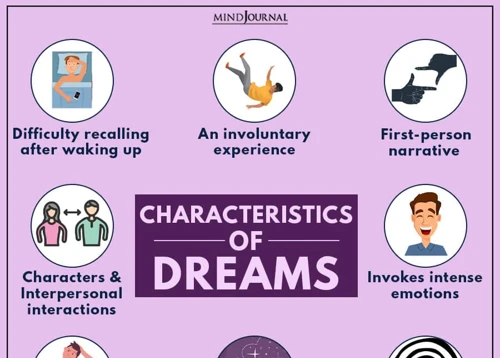Have you ever woken up from a dream feeling either euphoric or completely downcast? It’s no secret that dreams have a profound impact on our emotions, but what exactly is the connection between dreams and mood? In this article, we will delve into the fascinating world of dreams and emotional well-being, exploring how dream symbols can influence our mood. By understanding the language of dreams, interpreting common symbols, and personalizing their meanings, we can unlock the transformative power that dreams hold. Additionally, we will discover how dreams can be utilized as a tool to enhance emotional well-being through techniques such as dream journaling, lucid dreaming, and integrating dream work into therapy. So buckle up and get ready to dive into the mysterious realm of dreams and their profound impact on our emotional states.
Understanding Dreams and Mood

Dreams, those mysterious nocturnal adventures of the mind, have long fascinated and perplexed humans. But what exactly are dreams and how do they impact our mood? Dreams can be defined as a series of thoughts, images, and sensations that occur during sleep. They often reflect our subconscious mind’s desires, fears, and unresolved emotions. Our emotional well-being and mood are closely intertwined with our dreams. When we dream, our brain processes and expresses various emotions that we may not be aware of in our waking state. Dreams have the ability to evoke different emotional states, ranging from joy and excitement to fear and sadness. Understanding how dreams and mood are connected can provide valuable insights into our psychological and emotional landscape. By analyzing the symbols and themes within our dreams, we can gain a deeper understanding of ourselves and how our dreams affect our overall emotional well-being.
Definition of Dreams
Dreams are enigmatic experiences that occur during sleep and are a natural part of the human sleep cycle. They can be described as a combination of thoughts, emotions, images, and sensations that are woven together to create a narrative. While the exact purpose of dreaming is still debated by scientists and psychologists, there are different theories regarding their significance. Some propose that dreams are a reflection of our subconscious desires, fears, and unresolved emotions. Others believe that dreams serve as a way for the brain to process information and consolidate memories. Regardless of their purpose, dreams offer a window into the inner workings of our minds and can provide valuable insights into our psychological well-being. Dream symbols, such as dreaming of owing money or experiencing a miscarriage dream, often carry deeper meanings that can be explored and interpreted to gain a better understanding of ourselves and our emotions. The interpretation of dreams is a fascinating field that can shed light on the complexities of the human psyche.
Emotional Well-Being and Mood
Emotional well-being plays a crucial role in our overall quality of life. It refers to our ability to cope with and manage our emotions effectively. Our mood, or emotional state, is an integral aspect of our emotional well-being. When our mood is positive, we experience feelings of happiness, contentment, and fulfillment. On the other hand, negative moods can manifest as sadness, anger, or anxiety. Our dreams can have a profound impact on our emotional well-being and mood. Dreams can elicit strong emotional responses that linger even after waking up. For example, dreaming about a joyful event can leave us feeling uplifted and energetic throughout the day. Conversely, a nightmare or a vivid dream about a distressing situation may leave us feeling anxious or uneasy. The emotional content of our dreams can influence our mood, and by understanding and interpreting our dreams, we can gain insights into our emotional well-being. This knowledge empowers us to address any underlying emotional issues and work towards achieving a more positive and balanced state of mind.
Interpreting Dream Symbols

Dreams communicate to us through a symbolic language, requiring interpretation to unlock their meaning. Symbolism in dreams can vary widely from person to person, but certain symbols have common associations. For example, dreaming of water often represents emotions and the unconscious mind, while dreaming of a snake can symbolize transformation or hidden fears. Understanding these common dream symbols can provide valuable insights into our emotions and subconscious desires. However, it is important to recognize that dream symbols can also be personalized. A snake dream for one person might represent fear, while for another it may symbolize healing and transformation. By keeping a dream journal and reflecting on the symbols that appear, we can start deciphering the unique messages our dreams have for us. So the next time you dream of owing money, experiencing a miscarriage, or riding a motorcycle, pay attention to the emotions and situations within the dream and begin your personal interpretation.
Symbolic Language of Dreams
Dreams have their own unique language, often speaking to us through symbols and metaphors. This symbolic language of dreams allows our subconscious mind to communicate with us in a way that may not be easily understandable in our waking life. Symbols in dreams can hold different meanings for each individual and may be influenced by personal experiences and cultural backgrounds. For example, dreaming of water can represent emotions and the flow of life, while dreaming of flying may indicate a sense of freedom or transcendence. It’s important to note that dream symbols can have both universal meanings and personalized interpretations. While there are common dream symbols, such as falling or being chased, their significance may vary from person to person. Understanding the symbolic language of dreams requires us to pay attention to the context, emotions, and personal associations connected to each symbol. By delving deeper into the symbolism of our dreams, we can unlock valuable insights into our emotional state and gain a better understanding of ourselves.
Common Dream Symbols and Their Meanings
When it comes to understanding our dreams and their impact on our mood, decoding the symbols within them is essential. Dream symbols are often rich in meaning and can provide insights into our subconscious thoughts and emotions. Common dream symbols include water, which can represent emotions and the flow of life; flying, symbolizing freedom and transcending limitations; and falling, indicating a loss of control or insecurity. Animals, such as snakes or spiders, may symbolize hidden fears or subconscious desires. Specific objects like keys, mirrors, or clocks can also have symbolic meanings depending on the context of the dream. For example, dreaming of owing money (source) may reflect financial worry or a sense of indebtedness, while dreaming of a motorcycle (source) could imply a desire for freedom and adventure. It’s important to remember that dream symbols can vary in meaning from person to person, so it’s crucial to consider personal experiences and emotions when interpreting dreams.
Personalized Dream Symbol Interpretation
When it comes to dream interpretation, personalization is key. While there may be certain universal symbols, each individual’s dreams carry unique meanings and significance. Personalized dream symbol interpretation involves examining the symbols, themes, and emotions within a dream and relating them to the dreamer’s personal experiences and subconscious mind. For example, a dream about a miscarriage (link) may have different interpretations depending on the dreamer’s personal history and emotions surrounding pregnancy or loss. By exploring the personal context behind dream symbols, individuals can gain a deeper understanding of the messages their dreams are conveying and how these symbols impact their mood. Identifying and interpreting the personalized meanings of dream symbols allows for a more accurate and insightful analysis of how dreams affect emotional well-being.
Effects of Dream Symbols on Mood

Dream symbols can have a profound impact on our mood and emotional well-being. When we dream, our mind often uses symbolism to communicate its messages. These symbols can evoke intense emotions and affect our mood upon waking. Positive symbols in dreams, such as a beautiful sunrise or a symbol of success, can uplift our mood and leave us feeling motivated and hopeful. On the other hand, encountering negative symbols in dreams, such as a symbol of loss or failure, can leave us feeling anxious, upset, or even frightened. The power of dream symbols lies in their ability to tap into our subconscious and evoke strong emotional responses. They can act as catalysts for emotional processing, allowing us to explore and address unresolved feelings and experiences. The transformative power of dream symbols is immense, and by paying attention to them and their impact on our mood, we can gain valuable insights into our emotional well-being and initiate positive changes in our lives.
Positive Impact of Positive Symbols
Positive symbols in dreams can have a profound impact on our mood and emotional well-being. When we encounter positive symbols in our dreams, such as sunshine, flowers, or smiling faces, they can evoke feelings of happiness, joy, and optimism. These symbols act as emotional boosters, lifting our spirits and increasing our overall sense of positivity. They have the power to shift our mood from negative to positive, providing us with a sense of hope and encouragement. Positive dream symbols can also serve as reminders of the good things in our lives, helping us to focus on the positive aspects and appreciate the beauty around us. Embracing and cherishing the positive symbols in our dreams can positively influence our mood and contribute to our overall emotional well-being. So, next time you have a dream filled with positive symbols, savor them and let their uplifting energy brighten your day.
Negative Impact of Negative Symbols
Negative symbols in dreams can have a significant impact on our mood and emotional well-being. When we encounter negative symbols in our dreams, such as death, failure, or being chased, it can evoke feelings of fear, anxiety, or sadness. These negative symbols often reflect our fears, insecurities, and unresolved issues in our waking life. They can leave us feeling unsettled, overwhelmed, or even trigger past traumas. The emotional intensity of these dreams can linger even after we wake up, affecting our mood throughout the day. It is important to pay attention to these negative symbols and explore their deeper meanings. By acknowledging and addressing the underlying emotions and issues they represent, we can work towards resolving them and improving our emotional well-being.
Transformational
Subscribe to Our Newsletter
Sign up to receive the latest news and updates.
Power of Dream Symbols
Subscribe to Our Newsletter
Sign up to receive the latest news and updates.
Dream symbols possess a remarkable ability to bring about transformation and personal growth. These symbols act as powerful metaphors that can unlock hidden insights and guide us towards personal development. Each individual interprets dream symbols differently based on their unique experiences and associations. For some, seeing a bird in a dream may symbolize freedom and inspiration, while for others it may represent a feeling of being confined or trapped. Similarly, dreaming about water can be interpreted as a symbol of emotional cleansing and healing, or it can signify feelings of overwhelm and chaos. The transformative power lies in the interpretation and understanding of these symbols. By exploring the deeper meanings behind dream symbols and analyzing their impact on our emotions, we can tap into their transformative potential and make positive changes in our lives. Dream analysis techniques such as keeping a dream journal or seeking the guidance of a therapist can aid in harnessing the transformational power of dream symbols.
Enhancing Emotional Well-Being through Dreams
Dreams have the potential to not only impact our emotions but also serve as a powerful tool for enhancing our emotional well-being. There are several techniques that can be utilized to harness the healing power of dreams.
Dream Journaling and Emotional Processing: Keeping a dream journal allows us to record and analyze our dreams, providing insight into our emotional landscape. By writing down our dreams and reflecting on the symbols and emotions present, we can gain a deeper understanding of ourselves. This process of emotional processing can help us release and heal unresolved emotions.
Lucid Dreaming for Emotional Healing: Lucid dreaming, the state of being aware that we are dreaming while in the dream, offers a unique opportunity for emotional healing. During a lucid dream, we can consciously interact with the dream environment and choose to confront and overcome emotional challenges. This practice enables us to actively work through emotional blockages and promote healing.
Integration of Dream Work into Therapy: Dream work can be integrated into therapy sessions to facilitate emotional healing and growth. Therapists can help clients explore the symbols and themes within their dreams, providing a deeper understanding of their psyche and helping them address emotional issues. This integration of dream work and therapy can lead to profound insights and transformation.
By embracing these techniques and utilizing dreams as a resource for emotional well-being, we can tap into the vast reservoir of wisdom and healing that our dreams offer us. It is through this exploration and integration that we can unlock the transformative power of our dreams in enhancing our emotional well-being.
Dream Journaling and Emotional Processing
Dream journaling is a powerful technique that can aid in emotional processing and self-reflection. By keeping a journal next to your bed and writing down your dreams as soon as you wake up, you can capture the essence of your dream world and the emotions associated with it. The act of writing allows you to externalize and release any pent-up emotions from your dreams. It also helps you uncover patterns, symbols, and themes that may be recurring in your dreams, providing valuable insights into your subconscious mind. In your dream journal, you can use keywords to describe the emotions you experienced during the dream, as well as any significant symbols or events that stood out. By consistently recording your dreams, you can track your emotional journey over time and identify any changes or patterns that may be affecting your mood. Dream journaling can serve as a therapeutic tool, as it allows you to process and make meaning out of your dreams, promoting emotional healing and growth.
Lucid Dreaming for Emotional Healing
Lucid dreaming, a phenomenon in which the dreamer becomes aware that they are dreaming while still in the dream, holds immense potential for emotional healing. During a lucid dream, individuals have the ability to actively participate and manipulate the dream narrative. This can be an incredibly empowering experience for those seeking emotional healing. In a lucid dream, one can confront and engage with unresolved emotions, traumas, or fears in a safe and controlled environment. By consciously interacting with dream elements, individuals can reframe their experiences, gain insights, and even obtain a sense of closure. Lucid dreaming techniques, such as reality checks and keeping a dream journal, can help increase the likelihood of having lucid dreams. So whether you wish to confront past traumas or explore your innermost desires, lucid dreaming can serve as a potent tool for emotional healing and personal growth.
Integration of Dream Work into Therapy
Incorporating dream work into therapy can be a powerful tool for emotional healing. Therapists use various techniques to help clients explore and understand the symbolism and meaning behind their dreams. One common approach is dream journaling, where clients are encouraged to write down their dreams upon waking and reflect on their emotions and experiences within the dream. This process allows for a deeper exploration of the unconscious mind and can provide valuable insights into unresolved issues or recurring patterns. Another technique is known as lucid dreaming, where individuals learn to become aware that they are dreaming while still in the dream state. This awareness allows them to actively participate and manipulate the dream, providing an opportunity for emotional healing and transformation. Additionally, therapists may guide clients through dream reenactments or interpretations to gain deeper insights into their emotions and experiences. Integrating dream work into therapy offers a unique and powerful approach to addressing emotional challenges and promoting overall well-being.
Conclusion
In conclusion, the impact of dreams on our mood is undeniable. Dreams serve as a window into our subconscious mind, allowing us to explore and process our emotions in ways that are not always accessible during waking hours. By understanding the symbolic language of dreams and interpreting the meanings behind common symbols, we can gain valuable insights into our emotional well-being. Positive symbols in our dreams have the potential to uplift our mood and bring about feelings of joy and contentment. On the other hand, negative symbols can evoke fear, sadness, or anxiety. However, it’s essential to remember that the interpretation of dream symbols is highly personal and subjective. What may hold a positive or negative meaning for one person may differ for another. Dreams also have the power to facilitate emotional healing and growth when incorporated into therapeutic practices such as dream journaling or lucid dreaming. So, embrace the world of dreams, dive into the depths of your subconscious, and harness their transformative power to enhance your emotional well-being.
Frequently Asked Questions
How often do people dream?
On average, people can have multiple dreams per night, usually during the REM (rapid eye movement) stage of sleep.
Why do we forget our dreams?
The exact reason why we forget dreams is still unclear, but it could be due to the brain’s difficulty in consolidating dream memories into long-term memory.
Can dreams provide insight into our subconscious mind?
Yes, dreams are often considered a window into our subconscious mind. They can reveal hidden desires, fears, and unresolved emotions.
Do dreams have any meaning?
Many experts believe that dreams have symbolic meanings and can offer valuable insights into our personal and emotional lives.
Can recurring dreams affect our mood?
Recurring dreams can have a significant impact on our mood. They may indicate unresolved issues, anxieties, or patterns in our lives that need attention.
Are dream symbols universal or personal?
Dream symbols can have both universal meanings and personal significance. While certain symbols have collective interpretations, their meaning can also be influenced by an individual’s experiences and cultural background.
Can nightmares have long-lasting effects on our mood?
Yes, nightmares can leave a lingering impact on our mood, causing anxiety, fear, and distress even after waking up. In some cases, they may also be linked to trauma or underlying psychological issues.
What is lucid dreaming and can it affect our emotions?
Lucid dreaming is the state of being aware that you are dreaming while you are still in the dream. It can provide individuals with the ability to actively influence and even control the dream narrative, which can have a positive impact on emotions by allowing individuals to confront and resolve fears or anxieties within the dream.
Can dreams help with emotional processing and healing?
Yes, dreams can aid in emotional processing and healing. They provide a safe space to explore and process emotions, allowing individuals to gain insights, gain resolution, and find emotional balance.
How can dream work be integrated into therapy?
Dream work can be integrated into therapy by exploring and discussing dreams with a therapist. Therapists can help individuals analyze dream symbols, explore their meanings, and use the insights gained from dreams to promote emotional healing and personal growth.










